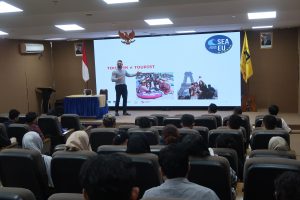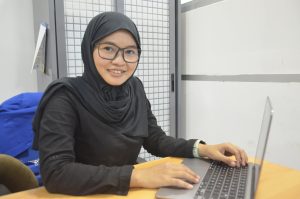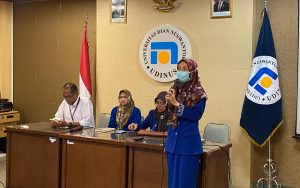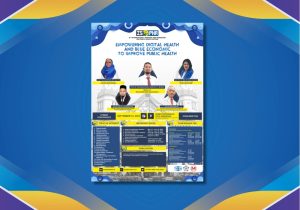Committed to reducing waste oil, three instructors from Universitas Dian Nuswantoro (Udinus) taught locals how to make hand soap using waste oil.
The training program was held in the I building at Udinus, with various locals of Pendrikan Kidul attending it. The program was led by Eko Hartini, S.T., M.Kes. She was accompanied by Menuk Dwi Kurniatie, S.Si., M.Biotech, and Dwi Nurul Izzhati, S.T., M.MT.
During her interview, Eko Hartini, S.T., M.Kes., explained that a hand soap made of waste oil possessed several better aspects compared to other soap products. One of those aspects was the fact that it was easy to make, as it could be made by mixing waste oil with alkaline liquid, either NaOH (sodium hydroxide) or KOH (potassium hydroxide). Furthermore, she revealed that the most difficult process was making the NaOH mixture. This is because the mixture will radiate hot steam. Therefore, it is advisable to use self-protecting gear, namely, a long-sleeved shirt, glasses, gloves, and a face mask.
After making the NaOH mixture, mix the mixture with waste oil until it becomes homogenous. It can also be added with various chemicals, including perfumes and coloring. Once the mixture becomes condensed, pour it into a mold. Then, wait for two to three weeks until the soap solidifies.
“Through this soap, we can push waste oil’s economic values to increase and prevent it from polluting the environment. In several cases, people tend to dispose of waste oil in sinks or drainages. This will cause the drainage to clog, as well as pollute both soils and water,” she explained.
Every member of this training program held their roles. Eko Hartini handled the concern surrounding the hand soap product. Meanwhile, the production technique was mainly handled by Menik Dwi Kurniati. When it comes to marketing the hand soap product, Dwi Nurul Izzhati was the person in charge.
Meanwhile, Irmina Siswiyanti, one of the locals participating in the training program, stated that the program was helpful. Furthermore, she hoped for similar programs to be held more routinely.
“As for the marketing, we, the locals, do need routine supervision so we can market the products,” she concluded. (Humas Udinus/Alex. Foto: Humas Udinus)






